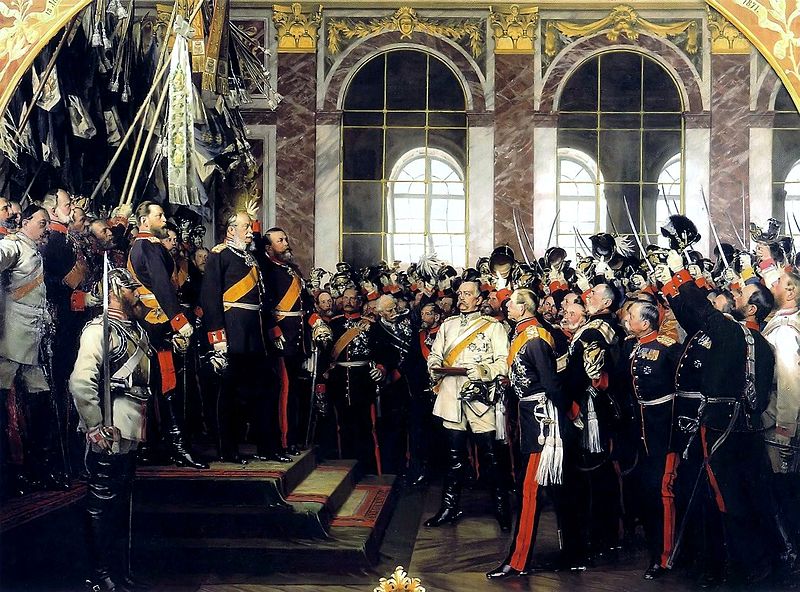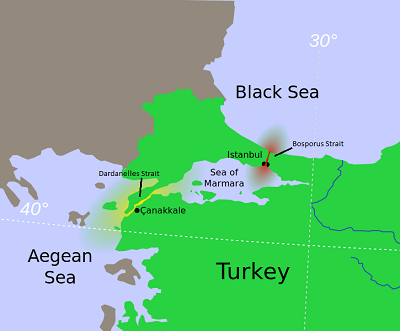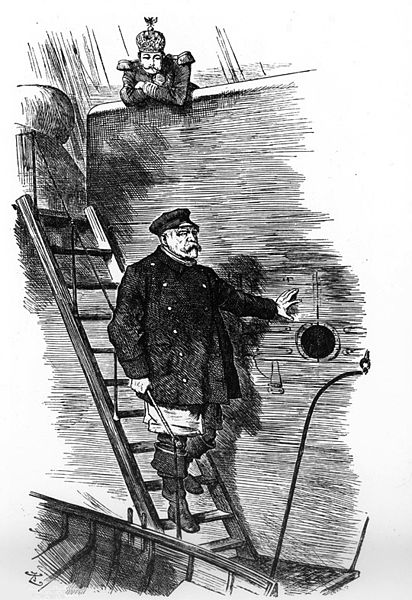Published on 29 Jul 2014
“It’s an idea of empowerment,” says the woman dressed as Captain America. “You get to be a different person for a day.”
Reason TV ventured to Comic-Con International in San Diego to check out the booming culture of cosplay, in which people dress up as their favorite superheroes, literary figures, or fantasy icons. Why do cosplayers dedicate so much time, money, and energy to their alter egos? It’s fun, they say, and it’s a powerful form of self-expression.
July 30, 2014
Reason.tv – Comic-Con, Cosplay, and Self-Expression
Another view of the Endarkenment – “a treasure trove of top-shelf heterdox samizdaty badness”
Andrea Castillo tries to outline the “Dark Enlightenment” (or “neoreaction”) for libertarians and other as-yet-unenlightened readers:
A puckish new brand of right-wing radical subverts the postmodern power machine each day over Twitter and RSS for fun and praxis. It’s a real hoot to watch. These rudely triggering firebrands are denounced by the people who matter as wrong-thinking zealots of the most problematic variety — to the masochistic vindication (and occasional sacking) of our impish dissidents. Their freakish messages seem almost tailored to demand attention in our outrage-driven world of social media signaling. Libertarians, meet the neoreaction.
Where to begin? We might think our post-scarcity anarcho-capitalist sex-positive brunch-laden anti-war techno-utopian open borders global activism is pretty avant garde, but these guys have moved on to fashion intellectual foundations for the glorious reinstatement of the rightful House of Stuart (among other anachronisms). They’ve been blowing up the extended artisanal blogosphere in a big way. We’re going to get lumped in with this crew more and more as they gain exposure (they’re not happy about it either), so you should probably know what we’re up against.
As I’ve mentioned before, I’m vaguely aware of some of the leading lights (or should that be “leading darks”) of this movement, but with one or two exceptions, I’m not aware of the details of their beliefs. I’m still not convinced they’re as “big bad” as they and their detractors seem to think they are.
Maybe we’re getting ahead of ourselves. This motley band of techno-futurists, traditionalists, seduction artists, funnymen, reluctant Sedevacantists, inconvenient ethnonationalists, monarchists, communitarians, general heretics, homebrewed evolutionists, and one dedicated Jacobite to guide them all is perhaps easier for libertarians to initially understand through what they commonly oppose than for what they separately advocate. It’s simpler than you might think.
You could say that these cats take Carlyle, Hobbes, and Darwin pretty seriously. They, like our premier techno-libertarian emissary, do not believe that freedom and democracy are compatible. They reject egalitarianism to a consistency that would have impressed even our old grizzly Bard. Some of them out-Hayek Hayek on social justice, too. Like Mises, they intuit and repudiate the anti-bourgeois mentality of political and cultural Marxism. According to the neoreactionary narrative, these false gods beguile and confuse the masses of unwitting postmoderns into worship of the Cathedral.
Understanding Moldbug’s Cathedral is key to understanding this Dark Enlightenment. Think of it as a public-private partnership that promotes and protects the entrenched secular Puritan paradigm (long story) that neoreactionaries believe runs the world. Or, in the parlance, it’s a cosmos sprung from a taxis that justifies the progressive right of the International Community. Take that rascally State we all rail against and add its cultural allies. Voilà: you have #realpolitik.
Who is to blame for the outbreak of World War One? (Part three of a series)
Over the last couple of days, I’ve posted some entries on the deep origins of the First World War (part one, part two). We’re just now getting to the point where the plots start twisting around one another like amorous snakes … this gets somewhat confusing from this point onwards (assuming you’re not already confused, that is).
Bismarck provides a masterclass in realpolitik
Otto von Bismarck looms large in the story of the origins of the First World War, although he died several years before it broke out: he was the pre-eminent architect of the German Reich, and a brilliant (and ruthless) diplomatic engineer. Despite a common belief that Bismarck as a warmonger, Eric Hobsbawm wrote that Bismarck “remained undisputed world champion at the game of multilateral diplomatic chess for almost twenty years after 1871, devot[ing] himself exclusively, and successfully, to maintaining peace between the powers” (The Age of Empire: 1875–1914).
While Bismarck became Chancellor of the new Reich in 1871, he had already held a series of important and powerful posts in the Prussian government, including Minister President of Prussia and Foreign Minister from 1861. In 1862, he made his long-range intentions quite plain in a speech to the Budget Committee:
Prussia must concentrate and maintain its power for the favorable moment which has already slipped by several times. Prussia’s boundaries according to the Vienna treaties are not favorable to a healthy state life. The great questions of the time will not be resolved by speeches and majority decisions — that was the great mistake of 1848 and 1849 — but by iron and blood.
In his long and impressive political career, he guided the creation of the unified German state while fending off the political demands of the liberals and socialists by conceding just enough to socialist pet causes to keep them working within the system (state pensions, for example, were a Bismarckian innovation calculated to just barely satisfy the left, but not to cost the state much if any actual revenue due to the high retirement age it set). He was emphatically not a fan of democracy: at one point, he finagled a “legal” way for the Prussian government’s revenues to continue for four years without a hint of democratic interference from the squabbling politicians in the Reichstag.
The editors of Bismarck’s Wikipedia entry seem to think he was first and foremost a benefactor to the working class, but I think they’re projecting — Reichskanzler Prince Otto von Bismarck was never particularly concerned with the welfare of the poor, except where that welfare contributed to the construction of a greater German empire. If that meant pandering to the Socialists, he’d pander with the best of them:
Bismarck implemented the world’s first welfare state in the 1880s. He worked closely with large industry and aimed to stimulate German economic growth by giving workers greater security. A secondary concern was trumping the Socialists, who had no welfare proposals of their own and opposed Bismarck’s. Bismarck especially listened to Hermann Wagener and Theodor Lohmann, advisers who persuaded him to give workers a corporate status in the legal and political structures of the new German state.
The wars he did fight were each calculated to advance the cause of German unification … under Prussian guidance and control, of course. Denmark lost the provinces of Schleswig (to Prussia) and Holstein (to Austria) in 1864, then Austria in turn lost Holstein (to Prussia) and Lombardy-Venetia (to Italy) two years later. His public moment of triumph was the proclamation of Wilhelm I as Emperor of Germany:

The proclamation of Prussian King Wilhelm I as German Emperor in the Hall of Mirrors in Versailles (Bismarck is at centre-right in the white uniform), by Anton von Werner. This version was commissioned by the Prussian royal family for chancellor Bismarck’s 70th birthday. (via Wikipedia)
Bismarck was not a fan of colonial adventures — he believed they were a distraction from more important issues in Europe and that the cost to obtain and run them was greater than the benefits derived from having them. Despite that, he allowed some colonies to be accumulated as game pieces to further his own priorities domestically. One of the European policies Bismarck implemented to great effect was the diplomatic isolation of France — on the quite reasonable basis that the French would take revenge on Germany for the humiliation of 1870 if they felt powerful enough to try it. The French Third Republic, which succeeded the Second Empire, was left without allies (and more galling: without the provinces of Alsace and Lorraine), due to Bismarck’s diligent efforts to bind the other great powers in alliances with one another and Bismarck managed to keep the French in that vulnerable position for the rest of his time in office.
Bismarck’s attempted solution to the Austro-Russian tensions in the Balkans was the Dreikaiserbund (The League of the Three Emperors) in 1873. This “meeting of the minds” was intended to dampen the risk of conflict by giving the Austrians a free hand in the Western area of the Balkans and the Russians a free hand in the East. The plan didn’t work as well as Bismarck had hoped, and the league was dissolved in 1887, as both of the other signatories felt too hampered by the terms of the agreement for too little benefit in return.
Bismarck’s next move was to create the Dual Alliance between Germany and Austria. The alliance was ostensibly defensive in nature, calling for each party to aid the other in the case of an attack by a third country (if the attacker was Russia, the alliance called for both parties to declare war, if it was another country — France — the non-attacked party was to remain neutral). In 1882, the Italians were added to the arrangement, but the terms of the Triple Alliance were not as defensive: requiring the other parties to actively assist an allied nation that was attacked, not just to remain neutral. Italy negotiated one clause in the agreement to ensure that they didn’t have to fight against Britain (which they activated in 1914).

The Turkish Straits (Bosporus Strait highlighted in red, and the Dardanelles Strait in yellow) (via Wikipedia)
In a speech to the Reichstag in 1888, Bismarck predicted the bloody outcome if a localized Balkan War were to trigger a continental one (from Emil Ludwig’s 1927 work, Wilhelm Hohenzollern: The last of the Kaisers):
He warned of the imminent possibility that Germany will have to fight on two fronts; he spoke of the desire for peace; then he set forth the Balkan case for war and demonstrates its futility: “Bulgaria, that little country between the Danube and the Balkans, is far from being an object of adequate importance … for which to plunge Europe from Moscow to the Pyrenees, and from the North Sea to Palermo, into a war whose issue no man can foresee. At the end of the conflict we should scarcely know why we had fought.”

Dropping the Pilot, a caricature by Sir John Tenniel (1820-1914), first published in the British magazine Punch, March 1890. (via Wikipedia)
One of the first critical pieces of diplomatic plumbing to go was the Reinsurance Treaty with Russia: the Russian government asked to renew the agreement, but Chancellor Caprivi (Bismarck’s successor) and Kaiser Wilhelm II thought they could do better by working the personal relationship between Wilhelm and Tsar Alexander III (and later, his “dear cousin Nicky” — Tsar Nicholas II). This worked so well that the French and Russian governments were already extending tentative diplomatic feelers toward one another by 1891.
Willliam L. Langer wrote of the end of Bismarck’s career:
Whatever else may be said of the intricate alliance system evolved by the German Chancellor, it must be admitted that it worked and that it tided Europe over a period of several critical years without a rupture. … there was, as Bismarck himself said, a premium upon the maintenance of peace.
[…]
His had been a great career, beginning with three wars in eight years and ending with a period of 20 years during which he worked for the peace of Europe, despite countless opportunities to embark on further enterprises with more than even chance of success. … No other statesman of his standing had ever before shown the same great moderation and sound political sense of the possible and desirable. … Bismarck at least deserves full credit for having steered European politics through this dangerous transitional period without serious conflict between the great powers.”
The third post in the series and we still haven’t left the nineteenth century! More to follow in the next few days.
QotD: Balancing the budget
… it sounds like a sober and centrist position. I mean who believes in deficit financing? Well everybody but you’re not suppose to admit it out loud. Like dwarf porn. Many watch but few will say so. What it means in practice is one of two things. If an actual conservative uses the term it means that the public service is getting taken to the tool shed. There being few actual conservatives in politics what it usually means is that we’ll keep spending until someone makes us stop.
That’s when the bond market vigilantes step in. Then everyone blames the bond market for ending the party. The kind politician would love, absolutely love, to spend more money on “X” but those evil Gordon Gekko types won’t let him. In truth the bond market traders are no more responsible for a government going broke than a doctor is responsible for giving an alcoholic DT.
The state, observed Bastiat so many years ago, is the great fiction by which everyone tries to live at the expense of everyone else. Politics is the lie that this can go on indefinitely. Voters complain about the low levels of honesty in politics. But a dishonest political class is the product of a dishonest electorate. If people want something for nothing, they’ll get the lying louses they deserve. Fool me once, shame on you. Fool me a hundred years in a row and the shame is very much on the ordinary bitchin’ voter.
Richard Anderson, “Transparent Lies”, The Gods of the Copybook Headings, 2014-07-28.



